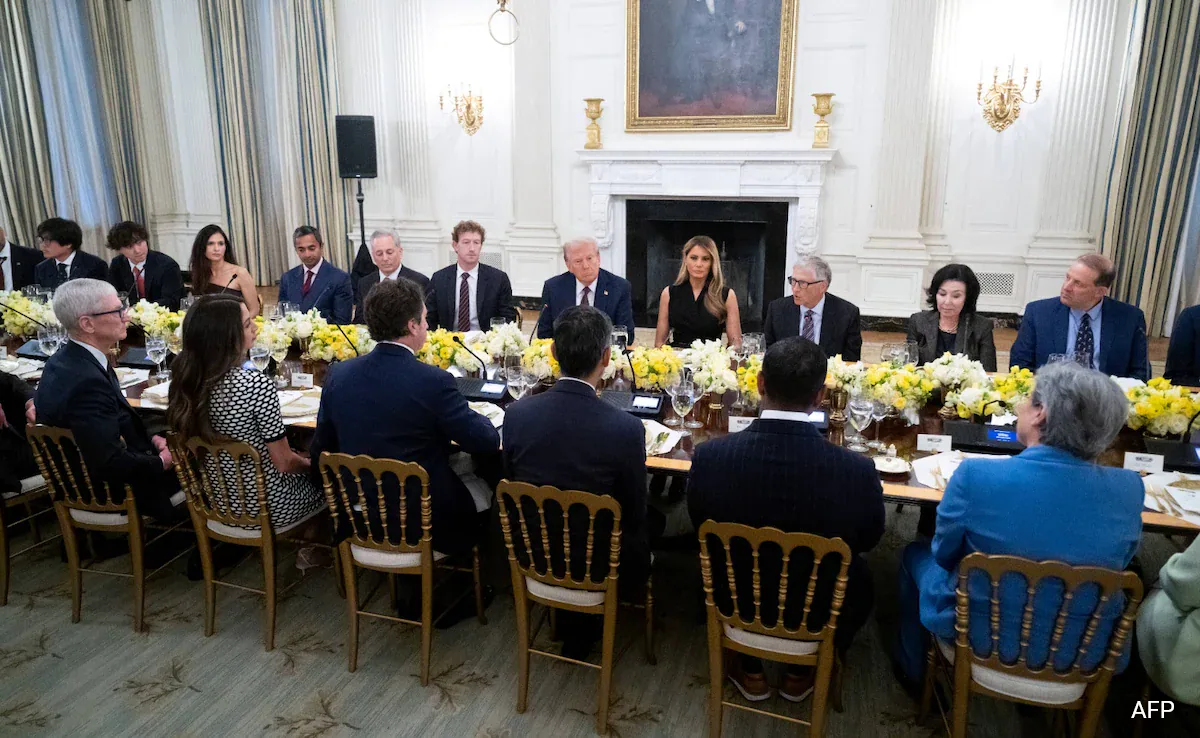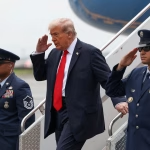The corridors of the White House recently echoed with the chatter of some of the most powerful figures in the global technology sector. Former President Donald Trump, known for his bold moves and unconventional political style, hosted a high-profile dinner bringing together leaders from Silicon Valley and beyond. The event was not just another social gathering; it was a symbolic moment that underscored the growing role of technology in shaping the economic and political direction of the United States. Yet, one conspicuous absence stood out—Elon Musk, the world’s richest man and one of the most influential figures in the technology industry, was not at the table. His absence fueled speculation, debate, and intrigue over the state of relations between Musk and Trump at a time when both command outsized influence over public discourse and innovation.
- The Symbolism of Hosting Tech Leaders at the White House
- Why Elon Musk’s Absence Matters
- The Conversations That Shaped the Evening
- Economic Stakes in the Tech-Politics Relationship
- The Role of Tech Leaders in Shaping Public Policy
- Global Implications of the White House Dinner
- Public Reactions and Media Debate
- FAQs
- Why did Trump host a White House dinner with tech leaders?
- Why was Elon Musk absent from the dinner?
- What issues were discussed at the dinner?
- How important is the tech sector to the U.S. economy?
- What message did this event send globally?
- Conclusion
The dinner highlighted the unique intersection of politics and technology in an era where artificial intelligence, cybersecurity, space exploration, and digital infrastructure are driving global competition. For Trump, who is positioning himself for a strong political future, this meeting with tech elites was more than a gesture of diplomacy. It was a statement of intent, signaling that technology leaders would remain integral to his vision for America’s economic and strategic future. For the tech sector, it was a reminder of how closely their fortunes are tied to federal policy decisions on everything from taxation to antitrust enforcement.
The Symbolism of Hosting Tech Leaders at the White House
Trump has always been a figure who thrives on symbolism and spectacle. By inviting top technology executives to dine at the White House, he sent a message to Wall Street, Main Street, and global capitals that the United States remains at the forefront of innovation. The dinner was meant to showcase collaboration, strength, and vision. With an industry responsible for more than 10% of U.S. GDP, technology is not just about apps, social media, or gadgets—it is a cornerstone of national power.
This event evoked comparisons to previous moments in American history when presidents forged strong alliances with industrial leaders. Just as Franklin D. Roosevelt relied on automotive titans during World War II to convert factories into wartime production hubs, Trump appeared to be signaling that the future of America’s competitiveness rests in the hands of tech executives.
Yet, as significant as the event was, the absence of Elon Musk—the CEO of Tesla, SpaceX, and X (formerly Twitter)—was impossible to ignore. Musk’s companies operate at the bleeding edge of technology, from electric vehicles and private spaceflight to artificial intelligence and social media. His absence raised questions about whether a deeper rift exists between him and Trump, or whether this was a tactical move on Musk’s part to distance himself from overt political alignments.
Why Elon Musk’s Absence Matters
Musk is not just another executive; he represents the embodiment of technological ambition and disruption. His companies touch nearly every area that Trump and other policymakers are eager to influence: clean energy, space dominance, AI regulation, and digital communication. His absence left a gap in discussions that might have shaped federal direction on space policy, electric vehicle incentives, or the regulation of online platforms.
Observers were quick to speculate. Some believe Musk may have chosen to sit out in order to avoid being drawn into political controversy, especially as his social media platform X remains a lightning rod in debates over free speech and misinformation. Others argue that Trump and Musk, both larger-than-life personalities with fiercely independent streaks, may have had a falling out behind the scenes.
Whatever the reason, Musk’s absence highlighted the delicate balance between political power and technological independence. In an era when the line between the public sector and private innovation is increasingly blurred, the lack of Musk at the White House dinner was as telling as the presence of other tech leaders.
The Conversations That Shaped the Evening
Although much of the dinner took place behind closed doors, sources suggest that the conversations covered a wide range of pressing issues. Artificial intelligence was at the forefront, with leaders debating how to balance innovation with ethical safeguards. Cybersecurity also emerged as a major topic, particularly with recent increases in cyberattacks targeting critical infrastructure and government agencies.
There were also discussions on supply chains, particularly regarding semiconductors and rare earth minerals. With global tensions rising between the U.S. and China, Trump emphasized the need for American tech companies to reduce reliance on foreign suppliers and invest more heavily in domestic production. One executive reportedly remarked, “The future of American power is going to be built not in Washington, but in data centers, laboratories, and satellite networks.”
Space exploration was another critical theme, with leaders from aerospace companies discussing opportunities for private-public partnerships. The absence of Musk, whose SpaceX dominates private spaceflight, meant that these conversations were missing a key voice. Still, executives and government officials alike stressed the importance of ensuring U.S. dominance in space as both an economic and strategic priority.
Economic Stakes in the Tech-Politics Relationship
The tech sector is not merely about innovation—it is about jobs, growth, and national wealth. According to the U.S. Bureau of Economic Analysis, the technology industry contributed over $2 trillion to the national economy in 2023. This makes collaboration between political leadership and industry figures not just symbolic but essential.
At the dinner, Trump emphasized his vision of America as a country that not only consumes technology but also leads in its creation. He pointed to the need for deregulation to unleash innovation, while some executives countered by stressing the importance of stable policies and global cooperation. This delicate dance between government oversight and corporate independence reflects a larger debate playing out across the world about how to regulate powerful tech companies without stifling their capacity to innovate.
The Role of Tech Leaders in Shaping Public Policy
In recent years, tech leaders have evolved from industry specialists to public figures with political influence. From Mark Zuckerberg’s congressional hearings to Jeff Bezos’ space ambitions, the role of the technology sector in shaping policy is undeniable. By bringing them to the White House, Trump reinforced the perception that tech leaders are now de facto policymakers whose decisions can impact national security, the economy, and even democratic processes.
The dinner also illustrated how much the public narrative has shifted. Once viewed as cultural outsiders, Silicon Valley leaders are now considered part of the establishment, courted by politicians across the spectrum. The questions are no longer whether tech leaders will influence politics but how directly and in what ways.
Global Implications of the White House Dinner
Beyond U.S. borders, the dinner sent a strong message to allies and rivals alike. As nations such as China race ahead in fields like artificial intelligence and quantum computing, the United States must demonstrate unity between its political leadership and technology sector. The event was designed to project American strength, reminding the world that innovation remains one of the nation’s greatest assets.
At the same time, the absence of Musk resonated globally. As one European analyst put it, “When the richest man in the world and the most politically dominant figure in America are not sitting at the same table, it raises questions about cohesion. If America cannot align its political and technological power, it risks losing ground to competitors who can.”
Public Reactions and Media Debate
The American public responded with a mix of curiosity and criticism. Supporters of Trump praised the dinner as a visionary move, positioning him as a leader who recognizes the importance of technology for national prosperity. Critics, however, warned that the event could deepen the perception that political power is increasingly concentrated in the hands of elites—whether in government or Silicon Valley boardrooms.
Media outlets were quick to highlight Musk’s absence, sparking speculation on social media platforms. Hashtags like #MuskMissing trended briefly, with users debating whether the Tesla and SpaceX CEO was snubbing Trump or simply avoiding political entanglements. For many Americans, the story became less about what was discussed at the dinner and more about who was not there.
FAQs
Why did Trump host a White House dinner with tech leaders?
Trump hosted the dinner to strengthen ties between political leadership and the technology industry, emphasizing the role of innovation in America’s economic growth, security, and global competitiveness.
Why was Elon Musk absent from the dinner?
The exact reason remains unclear. Some speculate Musk wished to avoid political controversy, while others believe there may be tensions between him and Trump. His absence was widely noted as significant.
What issues were discussed at the dinner?
Topics included artificial intelligence regulation, cybersecurity threats, semiconductor supply chains, and space exploration. These discussions highlighted the intersection of technology with national policy.
How important is the tech sector to the U.S. economy?
The tech sector contributes over $2 trillion annually to the U.S. economy and represents more than 10% of GDP. Its influence on jobs, innovation, and global competitiveness makes it central to national prosperity.
What message did this event send globally?
The dinner was intended to project American strength and unity between government and industry. However, Musk’s absence raised questions abroad about whether U.S. political and technological power are fully aligned.
Conclusion
The White House dinner hosted by Donald Trump with leading technology executives was more than an evening of conversation—it was a signal of the profound ways in which technology and politics are becoming intertwined.
In a world where artificial intelligence, cybersecurity, and space exploration are defining global competition, the presence of tech leaders at the table underscored their role as central architects of America’s future. Yet, the absence of Elon Musk revealed fault lines within this relationship, highlighting the challenges of aligning powerful individual innovators with political authority.









